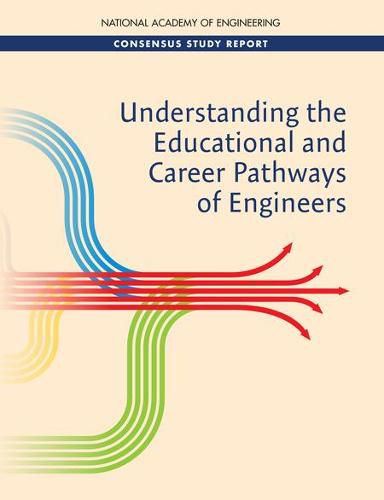Readings Newsletter
Become a Readings Member to make your shopping experience even easier.
Sign in or sign up for free!
You’re not far away from qualifying for FREE standard shipping within Australia
You’ve qualified for FREE standard shipping within Australia
The cart is loading…






Engineering skills and knowledge are foundational to technological innovation and development that drive long-term economic growth and help solve societal challenges. Therefore, to ensure national competitiveness and quality of life it is important to understand and to continuously adapt and improve the educational and career pathways of engineers in the United States. To gather this understanding it is necessary to study the people with the engineering skills and knowledge as well as the evolving system of institutions, policies, markets, people, and other resources that together prepare, deploy, and replenish the nation’s engineering workforce.
This report explores the characteristics and career choices of engineering graduates, particularly those with a BS or MS degree, who constitute the vast majority of degreed engineers, as well as the characteristics of those with non-engineering degrees who are employed as engineers in the United States. It provides insight into their educational and career pathways and related decision making, the forces that influence their decisions, and the implications for major elements of engineering education-to-workforce pathways.
$9.00 standard shipping within Australia
FREE standard shipping within Australia for orders over $100.00
Express & International shipping calculated at checkout
Engineering skills and knowledge are foundational to technological innovation and development that drive long-term economic growth and help solve societal challenges. Therefore, to ensure national competitiveness and quality of life it is important to understand and to continuously adapt and improve the educational and career pathways of engineers in the United States. To gather this understanding it is necessary to study the people with the engineering skills and knowledge as well as the evolving system of institutions, policies, markets, people, and other resources that together prepare, deploy, and replenish the nation’s engineering workforce.
This report explores the characteristics and career choices of engineering graduates, particularly those with a BS or MS degree, who constitute the vast majority of degreed engineers, as well as the characteristics of those with non-engineering degrees who are employed as engineers in the United States. It provides insight into their educational and career pathways and related decision making, the forces that influence their decisions, and the implications for major elements of engineering education-to-workforce pathways.